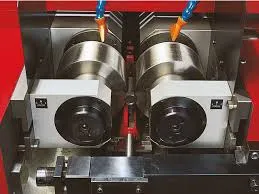
-
 Afrikaans
Afrikaans -
 Albanian
Albanian -
 Amharic
Amharic -
 Arabic
Arabic -
 Armenian
Armenian -
 Azerbaijani
Azerbaijani -
 Basque
Basque -
 Belarusian
Belarusian -
 Bengali
Bengali -
 Bosnian
Bosnian -
 Bulgarian
Bulgarian -
 Catalan
Catalan -
 Cebuano
Cebuano -
 Corsican
Corsican -
 Croatian
Croatian -
 Czech
Czech -
 Danish
Danish -
 Dutch
Dutch -
 English
English -
 Esperanto
Esperanto -
 Estonian
Estonian -
 Finnish
Finnish -
 French
French -
 Frisian
Frisian -
 Galician
Galician -
 Georgian
Georgian -
 German
German -
 Greek
Greek -
 Gujarati
Gujarati -
 Haitian Creole
Haitian Creole -
 hausa
hausa -
 hawaiian
hawaiian -
 Hebrew
Hebrew -
 Hindi
Hindi -
 Miao
Miao -
 Hungarian
Hungarian -
 Icelandic
Icelandic -
 igbo
igbo -
 Indonesian
Indonesian -
 irish
irish -
 Italian
Italian -
 Japanese
Japanese -
 Javanese
Javanese -
 Kannada
Kannada -
 kazakh
kazakh -
 Khmer
Khmer -
 Rwandese
Rwandese -
 Korean
Korean -
 Kurdish
Kurdish -
 Kyrgyz
Kyrgyz -
 Lao
Lao -
 Latin
Latin -
 Latvian
Latvian -
 Lithuanian
Lithuanian -
 Luxembourgish
Luxembourgish -
 Macedonian
Macedonian -
 Malgashi
Malgashi -
 Malay
Malay -
 Malayalam
Malayalam -
 Maltese
Maltese -
 Maori
Maori -
 Marathi
Marathi -
 Mongolian
Mongolian -
 Myanmar
Myanmar -
 Nepali
Nepali -
 Norwegian
Norwegian -
 Norwegian
Norwegian -
 Occitan
Occitan -
 Pashto
Pashto -
 Persian
Persian -
 Polish
Polish -
 Portuguese
Portuguese -
 Punjabi
Punjabi -
 Romanian
Romanian -
 Russian
Russian -
 Samoan
Samoan -
 Scottish Gaelic
Scottish Gaelic -
 Serbian
Serbian -
 Sesotho
Sesotho -
 Shona
Shona -
 Sindhi
Sindhi -
 Sinhala
Sinhala -
 Slovak
Slovak -
 Slovenian
Slovenian -
 Somali
Somali -
 Spanish
Spanish -
 Sundanese
Sundanese -
 Swahili
Swahili -
 Swedish
Swedish -
 Tagalog
Tagalog -
 Tajik
Tajik -
 Tamil
Tamil -
 Tatar
Tatar -
 Telugu
Telugu -
 Thai
Thai -
 Turkish
Turkish -
 Turkmen
Turkmen -
 Ukrainian
Ukrainian -
 Urdu
Urdu -
 Uighur
Uighur -
 Uzbek
Uzbek -
 Vietnamese
Vietnamese -
 Welsh
Welsh -
 Bantu
Bantu -
 Yiddish
Yiddish -
 Yoruba
Yoruba -
 Zulu
Zulu
custom thread rolling machine working
The Working Principle of Custom Thread Rolling Machines
Thread rolling machines are specialized machines used to create threads on cylindrical workpieces through a process called cold working. Unlike conventional cutting methods, which remove material from the workpiece, thread rolling preserves the base material's structure and enhances its mechanical properties. This article explores the working principle of custom thread rolling machines, their applications, and the advantages they offer in various industries.
The Working Principle of Custom Thread Rolling Machines
The operation of custom thread rolling machines can vary depending on the specific requirements of the application. Some machines are equipped with programmable controls that allow operators to adjust parameters such as pressure, speed, and feed rate, ensuring optimal results for different threading tasks. Additionally, custom thread rolling machines can be designed to accommodate a variety of thread sizes and profiles, from fine screws to large bolts, making them highly versatile and efficient.
custom thread rolling machine working

One significant advantage of thread rolling over traditional machining methods is the enhanced mechanical properties of the finished product. The process aligns the grain structure of the material, which increases its strength and durability. This makes thread rolling an ideal choice for producing high-stress components used in automotive, aerospace, and construction industries, where reliability is paramount.
Another benefit of custom thread rolling machines is their efficiency. The cold working process produces minimal waste, as no material is cut away. This not only reduces production costs but also lessens the environmental impact of manufacturing operations. Furthermore, the speed at which these machines can operate allows manufacturers to produce a higher volume of threaded components in a shorter amount of time, meeting the demands of modern production schedules.
In conclusion, custom thread rolling machines play a vital role in the manufacturing of threaded components across numerous industries. Their ability to produce strong, high-quality threads efficiently and with minimal waste makes them an integral part of the machining process. As technology continues to advance, these machines are likely to incorporate even more sophisticated automation and monitoring systems, further enhancing their capabilities and adaptability to various manufacturing needs. Whether for automotive fasteners or specialized aerospace components, custom thread rolling machines remain a cornerstone of modern metalworking.
